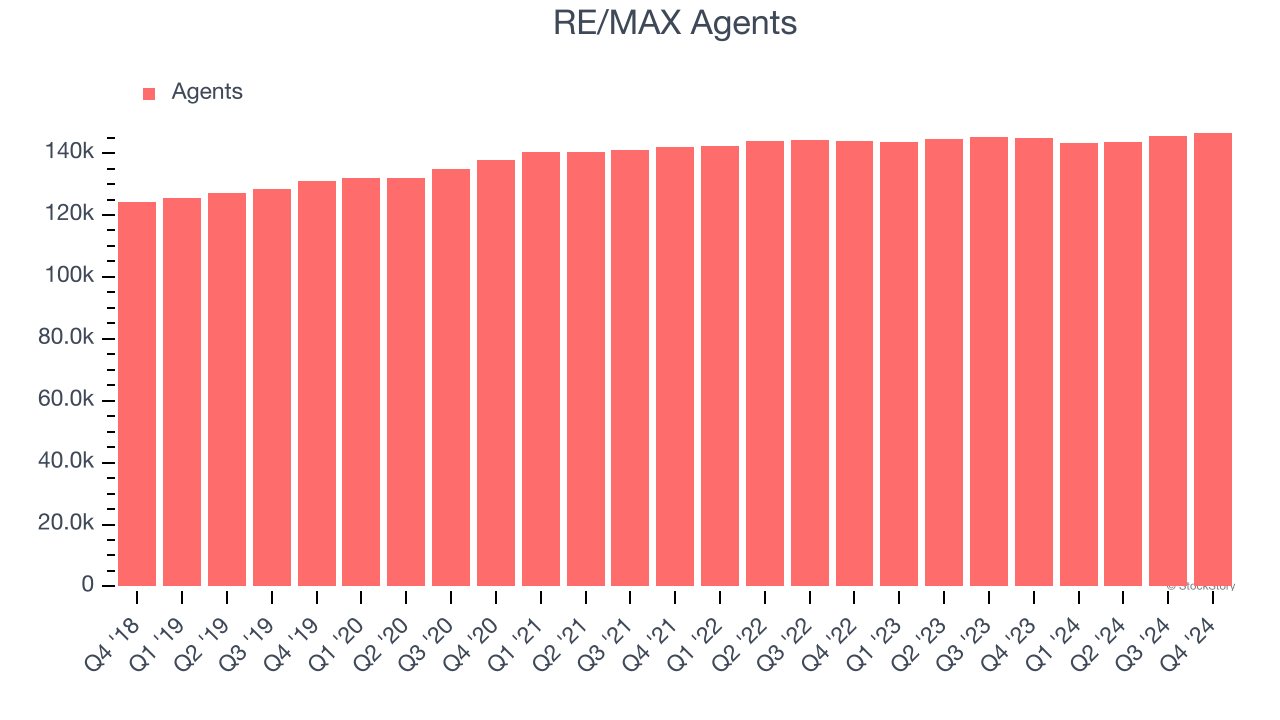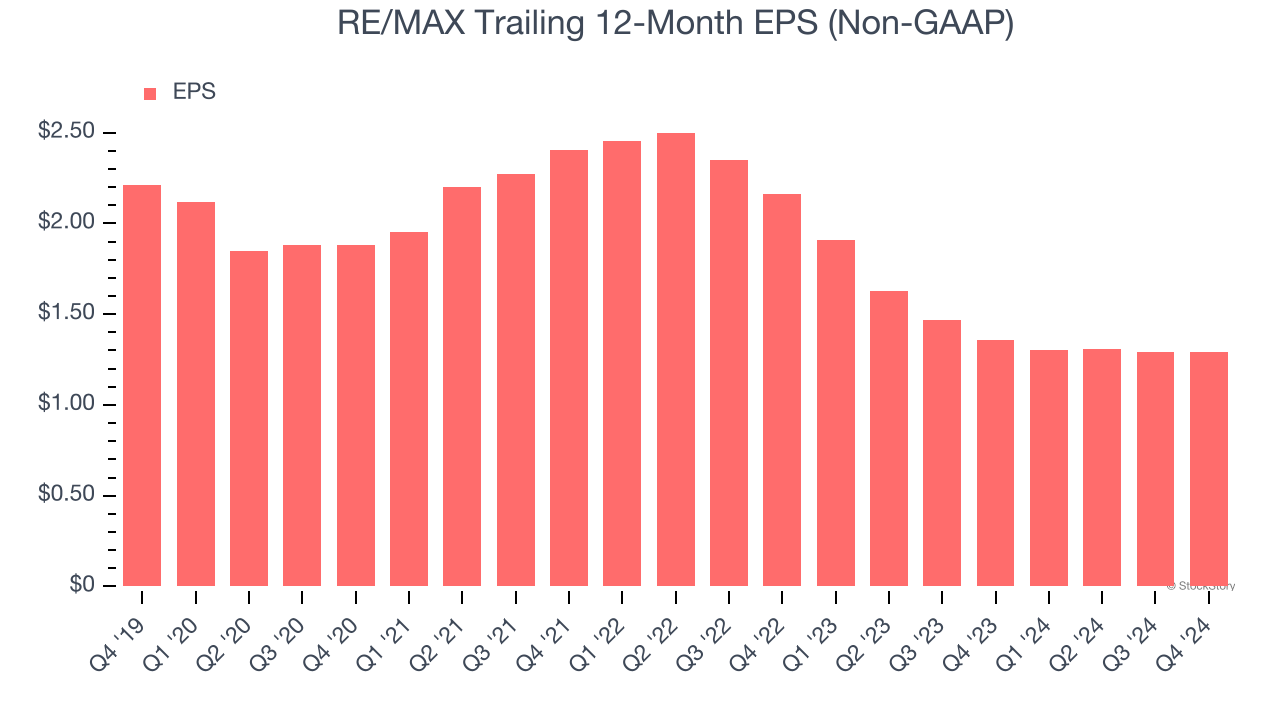
The past six months haven’t been great for RE/MAX. It just made a new 52-week low of $6.99, and shareholders have lost 42.9% of their capital. This was partly due to its softer quarterly results and might have investors contemplating their next move.
Is there a buying opportunity in RE/MAX, or does it present a risk to your portfolio? Get the full breakdown from our expert analysts, it’s free.
Even though the stock has become cheaper, we're swiping left on RE/MAX for now. Here are three reasons why RMAX doesn't excite us and a stock we'd rather own.
Why Do We Think RE/MAX Will Underperform?
Short for Real Estate Maximums, RE/MAX (NYSE: RMAX) operates a real estate franchise network spanning over 100 countries and territories.
1. Inability to Grow Agents Points to Weak Demand
Revenue growth can be broken down into changes in price and volume (for companies like RE/MAX, our preferred volume metric is agents). While both are important, the latter is the most critical to analyze because prices have a ceiling.
Over the last two years, RE/MAX failed to grow its agents, which came in at 146,627 in the latest quarter. This performance was underwhelming and implies there may be increasing competition or market saturation. It also suggests RE/MAX might have to lower prices or invest in product improvements to accelerate growth, factors that can hinder near-term profitability. 
2. EPS Trending Down
Analyzing the long-term change in earnings per share (EPS) shows whether a company's incremental sales were profitable – for example, revenue could be inflated through excessive spending on advertising and promotions.
Sadly for RE/MAX, its EPS declined by 10.2% annually over the last five years while its revenue grew by 1.7%. This tells us the company became less profitable on a per-share basis as it expanded.

3. Cash Flow Margin Set to Decline
If you’ve followed StockStory for a while, you know we emphasize free cash flow. Why, you ask? We believe that in the end, cash is king, and you can’t use accounting profits to pay the bills.
Over the next year, analysts predict RE/MAX’s cash conversion will fall. Their consensus estimates imply its free cash flow margin of 16.5% for the last 12 months will decrease to 3.2%.
Final Judgment
RE/MAX doesn’t pass our quality test. After the recent drawdown, the stock trades at 5.4× forward price-to-earnings (or $6.99 per share). While this valuation is optically cheap, the potential downside is huge given its shaky fundamentals. There are better stocks to buy right now. We’d recommend looking at a top digital advertising platform riding the creator economy.
Stocks We Would Buy Instead of RE/MAX
Market indices reached historic highs following Donald Trump’s presidential victory in November 2024, but the outlook for 2025 is clouded by new trade policies that could impact business confidence and growth.
While this has caused many investors to adopt a "fearful" wait-and-see approach, we’re leaning into our best ideas that can grow regardless of the political or macroeconomic climate. Take advantage of Mr. Market by checking out our Top 6 Stocks for this week. This is a curated list of our High Quality stocks that have generated a market-beating return of 175% over the last five years.
Stocks that made our list in 2019 include now familiar names such as Nvidia (+2,183% between December 2019 and December 2024) as well as under-the-radar businesses like Comfort Systems (+751% five-year return). Find your next big winner with StockStory today for free.






